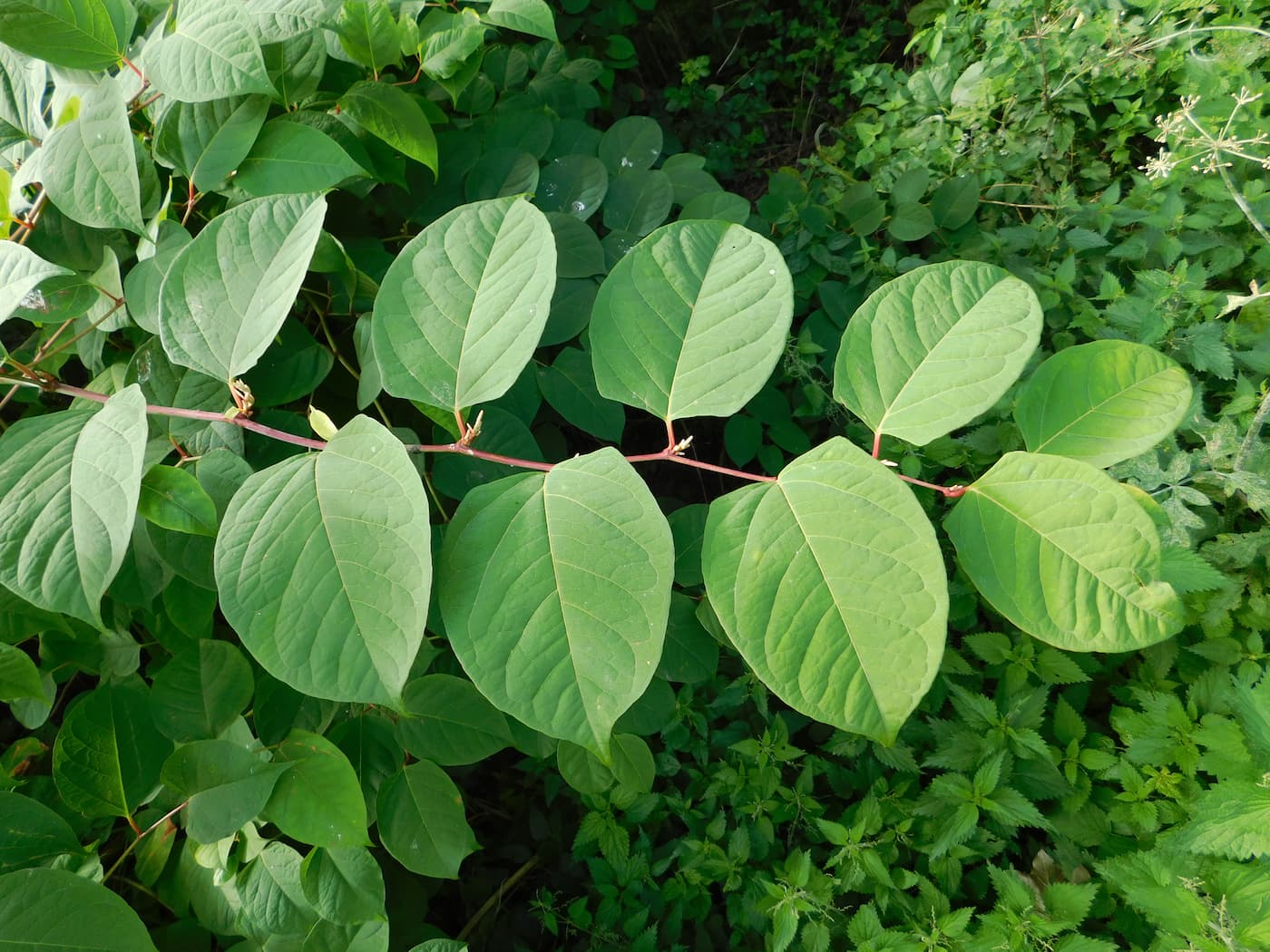We understand the frustration and concern that many homeowners in Bristol are facing due to the relentless invasion of Japanese Knotweed in their gardens. This invasive plant has become a serious issue, causing damage to properties, affecting the local ecosystem, and posing a threat to the natural beauty of the area. As experts in invasive weeds, horticulture and garden management, we are here to provide you with valuable insights and solutions to tackle this notorious intruder.
Understanding Japanese Knotweed
Before we delve into the methods of controlling Japanese Knotweed, it’s essential to know more about this formidable opponent. Japanese Knotweed, scientifically known as Fallopia japonica, is native to East Asia and was introduced to the United Kingdom in the 19th century as an ornamental plant due to its attractive appearance.
This perennial plant is characterised by its bamboo-like stems, heart-shaped leaves, and clusters of small white flowers. Despite its seemingly innocent appearance, Japanese Knotweed is incredibly resilient and can grow at an alarming rate, up to 10 cm per day during its peak season! It spreads through underground rhizomes, making it challenging to eradicate once established.
The Threat to Bristol Gardens and Surrounding Areas
The aggressive nature of Japanese Knotweed makes it a significant threat to gardens not only in central Bristol neighbourhoods like Redland and Cotham but also in surrounding suburbs such as Henleaze, Stoke Bishop, and Westbury-on-Trym. If left unchecked, it can quickly overtake precious outdoor spaces, suffocating native plants and disrupting ecosystems in cherished green spaces like Ashton Court Estate, Leigh Woods, and the Avon Gorge.
Additionally, the strong root system of Japanese Knotweed enables it to penetrate deep into the ground, potentially causing structural damage to buildings, brick walls, driveways and patios in areas like Bishopston, Clifton, and St. Andrews. This unwelcome invader does not discriminate, creeping into gardens and along pathways in Hanham, Long Ashton, Keynsham, Fishponds, and Knowle alike.
Furthermore, the presence of Japanese Knotweed can lower property values, deter potential buyers, and create legal issues when trying to sell homes across Bristol, from Easton to Bedminster. Mortgage lenders and insurance companies are especially wary of properties affected by this invasive plant, making it essential for homeowners to address the issue promptly and effectively, whether in Kingsdown, Southmead or inner-city districts.
Effective Control Measures
A combination of well-planned strategies is the key to successfully managing Japanese Knotweed infestations. Here are some effective control measures we employ to help you regain control of your Bristol garden:
1. Chemical Treatments: A Strategic Approach
Chemical treatments, when used responsibly and strategically, can be an effective method to control Japanese Knotweed. Our team of experts utilises herbicides that are specifically designed to target the plant while minimising harm to the surrounding environment. With years of experience in horticulture, we know the right herbicides to use and the most suitable timing for their application, ensuring optimal results.
2. Digging and Excavation
For less severe infestations, digging and excavation can be a viable option. This method involves physically removing the Knotweed from the ground, including its intricate root system. However, this approach requires precision and expertise, as even a small fragment of the rhizome left behind can lead to its resurgence. Our team follows industry best practices to ensure thorough removal and proper disposal of the plant material.
3. Root Barriers: Preventing Future Spread
To prevent the further spread of Japanese Knotweed, we recommend installing root barriers around your property. Root barriers act as a physical barrier, inhibiting the lateral growth of the rhizomes and limiting their ability to encroach upon your garden. Our skilled technicians will install the barriers strategically, providing you with a long-term solution to protect your outdoor space.
4. Continuous Monitoring and Maintenance
Controlling Japanese Knotweed is an ongoing process that requires diligent monitoring and maintenance. Our team will regularly inspect your garden, ensuring that any regrowth is promptly addressed. We also provide valuable advice on how to maintain a healthy and resilient garden to prevent future infestations.
Preventing Japanese Knotweed Spread in Bristol
Prevention is key to managing Japanese Knotweed growth in Bristol and the UK. As responsible writers, we urge Bristol homeowners to take the following preventive measures:
Be Vigilant
Regularly inspect your garden, fence lines, pavements and surrounding areas in both summer and winter for any signs of Japanese Knotweed shoots or red speckled bamboo-like stems emerging. Keep an eye out after major events like floods or earthworks that could unearth rhizomes.
Dispose of Waste Properly
Never dump garden waste containing Japanese Knotweed stems, leaves or rhizome material in household bins, local parks, waterways or uncontrolled areas where it could take root. Seek advice from Bristol City Council on proper disposal methods for knotweed waste.
Avoid Spreading Soil
Take great care not to transport soil or rubble containing traces of Japanese Knotweed rhizomes from an infested site to an uninfested one during gardening or construction projects. Screen and treat soil properly.
Buy Certified Plants
When purchasing any new plants, shrubs or trees for your Bristol garden, always check for official certification from the nursery that they are Japanese Knotweed-free and cultivated in controlled conditions.
Educate Your Neighbours
Talk to others in your local Bristol community about how to identify Japanese Knotweed. Collaborate with neighbours to spot and report any occurrences so professional treatment can begin before it spreads.
At Conservation Land Services we are committed to providing high-quality, informative, and engaging content that hopefully provides you with the right advice and guidance on the best ways to deal with your invasive weed problems.
Reach out to our Bristol Office if you need advice, an invasive weed check, or a professional Knotweed survey if you are thinking of selling or buying a house and you suspect you have Japanese Knotweed on or near your property.
The Postcode Areas We Serve
Gloucester and Swindon
Birmingham and the Midlands
Bristol and the South West
Cardiff and South Wales










